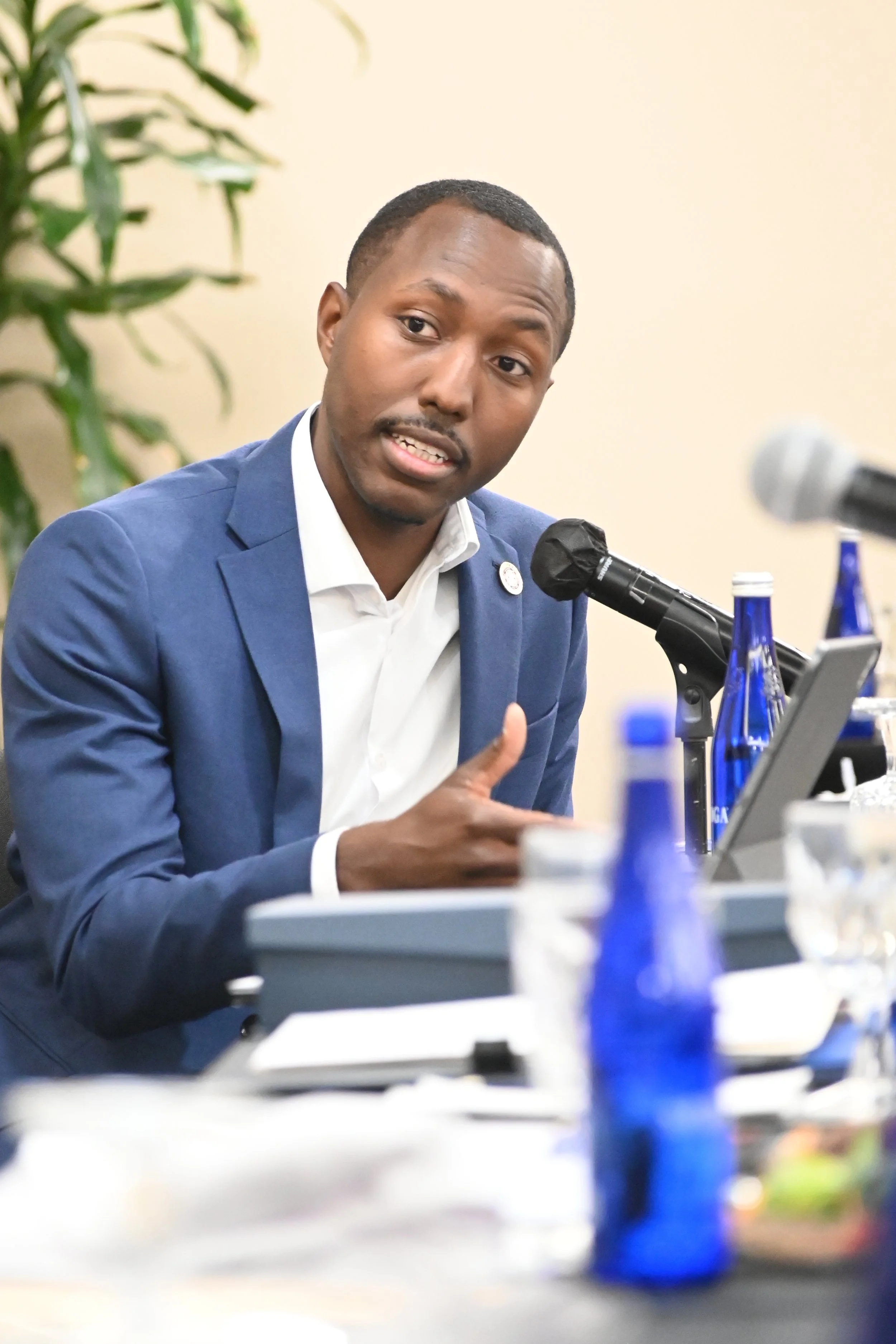Jazzed Up
Maryland Delegate Jazz Lewis Speaks Of What The Future Of Prince George’s County Should Bring
GPGBR Founder, president and CEO Jim Estepp pose a question to Del. Jazz Lewis.
By Kristina Townsend // PHOTOGRAPHY BY RAOUL DENNIS
It seems Jazz is the key to a brighter future in Maryland.
But while music lifts the soul, it’s Delegate Jazz M. Lewis who, as an elected official, aims to help contribute to such a future.
Jazz Lewis represents the 24th Legislative District. Though people may often think otherwise, Jazz is his given name as he reminded business leaders at the Prince George’s Business Roundtable event on July 12. He did have an interest in music in the past: “I played guitar in college to help pay my way through, but now, for my two-year-old, I typically just play Disney songs.”
Lewis is a lifelong resident of Maryland. Born in Silver Spring in February 1989, the Charles Herbert Flowers High School graduate currently lives in Glenarden with his wife and son.
When Lewis reached college, politics began to snag his interest.
While attending the University of Maryland in College Park, Lewis became a campus organizer, leading hundreds of other students as they protested the rise in tuition costs. Officially, the young activist’s career launched in 2011, after he graduated with a bachelor’s degree in political science. Continuing to build his legacy as one who would stand up for his community, Lewis joined the Service Employees International Union (SEIU) as a community organizer in Washington. In 2012, he also became an organizer for the Good Jobs Better Baltimore campaign.
From there, the future delegate took on many roles including regional field director for Ben Cardin's Senate campaign and executive director for U.S. Representative Steny Hoyer in 2015. The latter was the last role he received before being appointed to the House of Delegates by Gov. Larry Hogan in 2017.
Lewis’ easy demeanor and broad smile seemed to create a comfortable bond between he and his audience with the executive level group as he segued into his message.
“I serve as the Majority Whip,” he said. “Which means I'm the third-ranked person in the House Chamber. I'm the Vice Chair of the Capital Budget, which spends a lot of your taxpayer dollars in targeting investments to try to stimulate the economy, and which I think is really important.”
Lewis spoke to the entire audience but verbally singled out first responders and public service leaders. He believes they, along with education, are critical to his vision toward elevating the county and he plays a significant role in being able to those agencies. But he needed to link with business as part of the work.
“This upcoming legislative session, we're all following the crime that we're seeing in Baltimore, and that we're seeing in neighboring DC. I want to say maybe a month-and-a-half ago, it could be two months ago at this point, I held a roundtable with most of the public safety leadership in our county, and I've been doing, similarly, in other parts of the state, through my role holding the Public Safety Budget, to try to figure out, what are the target investments we need to do?
I've asked them to supply me with a list of resources that they think they'll need. It's not necessarily so that I'll be able to get everything, but in an environment where we are 100% supportive of appropriate accountability for everybody, we want to make sure our law enforcement community know that we also have their back. Because they live in our neighborhoods and we need them if we're ever going to wrap our hands around this, and I stand committed to that.”
Lewis, now 34, has begun building a track record in Annapolis. He addressed healthcare concerns by sponsoring legislation to subsidize care within high-need neighborhoods “We passed a bill called the Health Equity Resource Community Initiative, which of you here will remember our now Attorney General Anthony Brown's Health Enterprise Zone Initiative. With the Health Enterprise Zones, we essentially subsidize health practitioners locating in our high-needs community, providing free care, and that limited the number of people returning into our halls of healthcare. We spent $15 million on that and saved $100 million. For this one, we've allocated $100 million, so we're hoping to get the savings of multiple billions for that.”
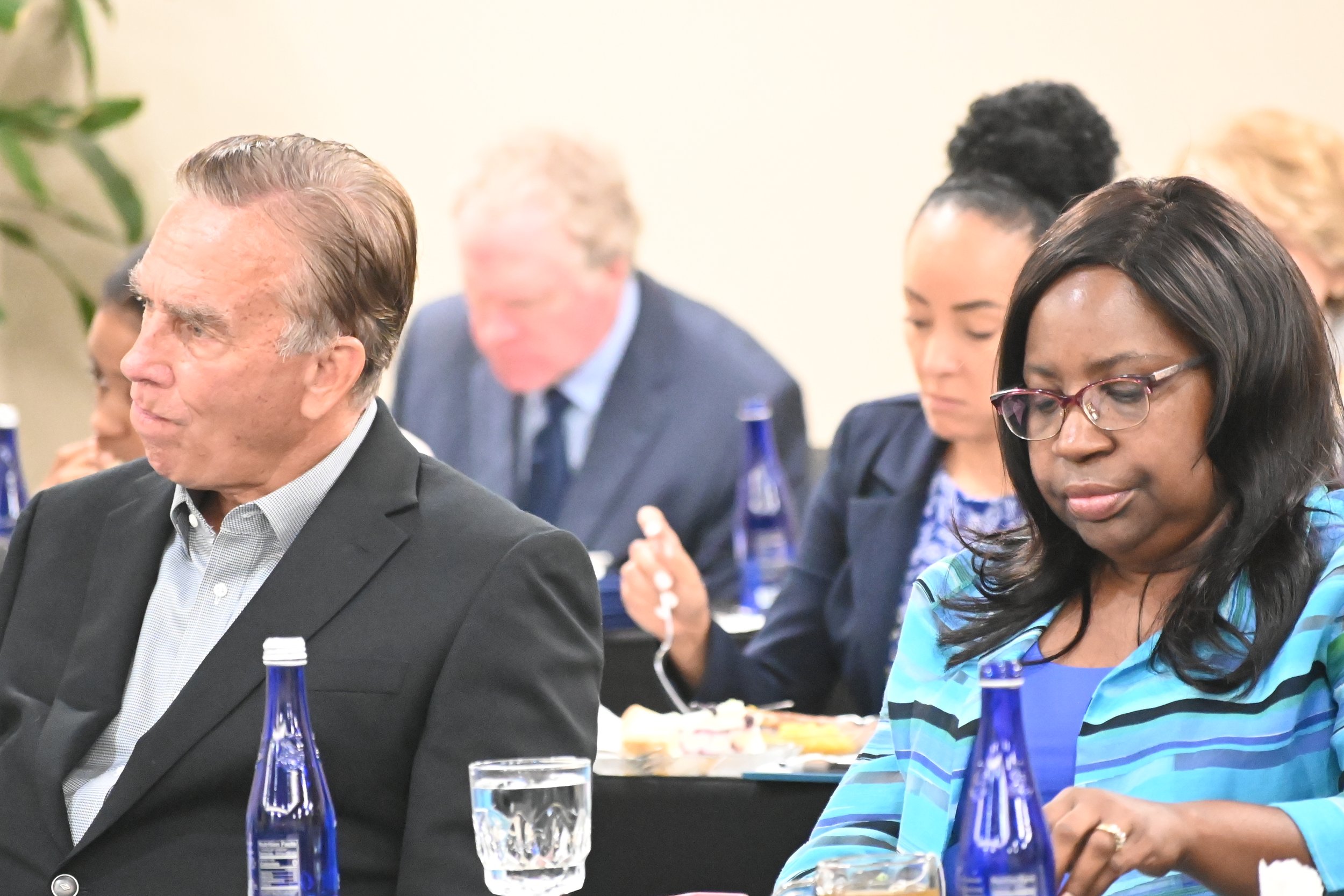
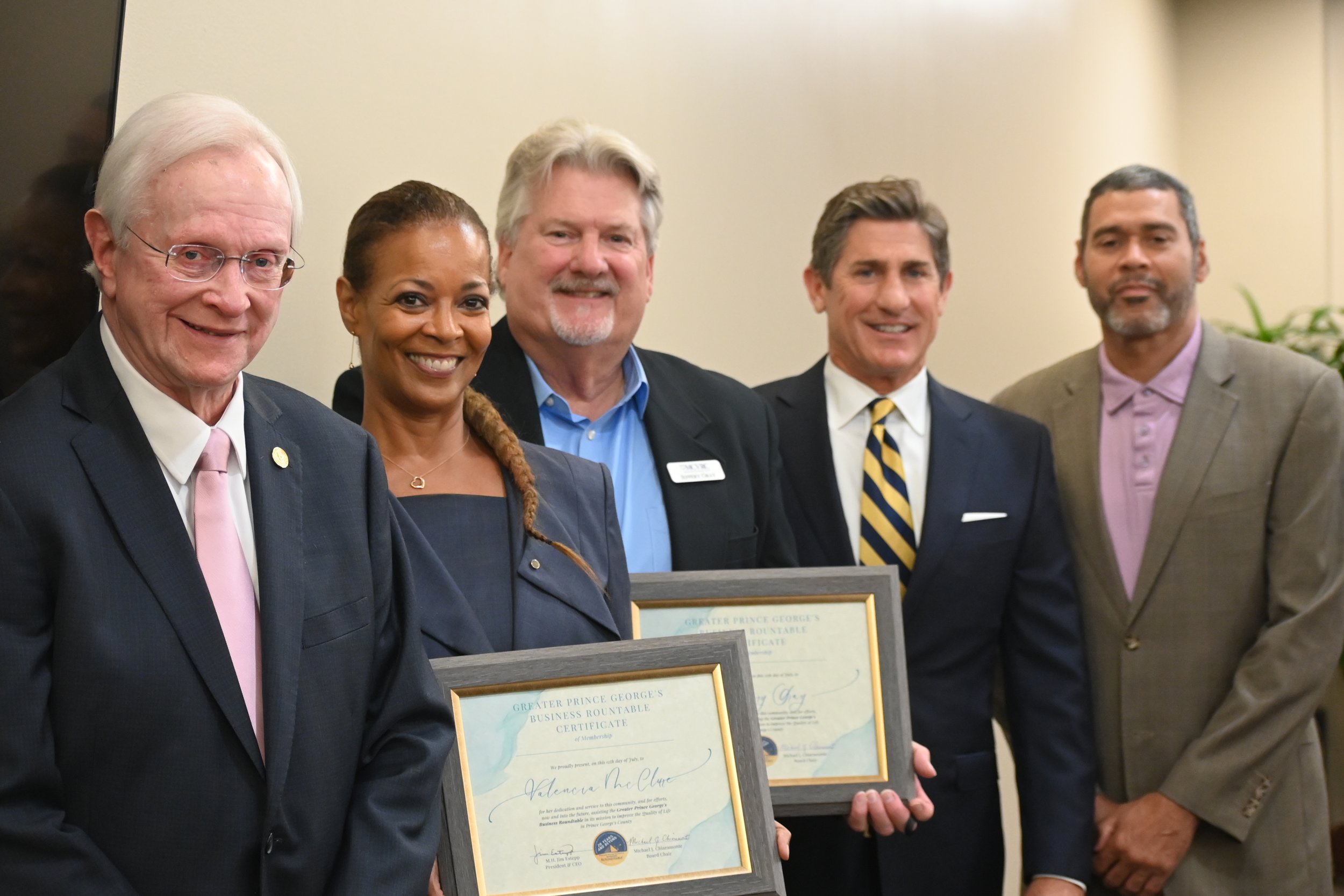

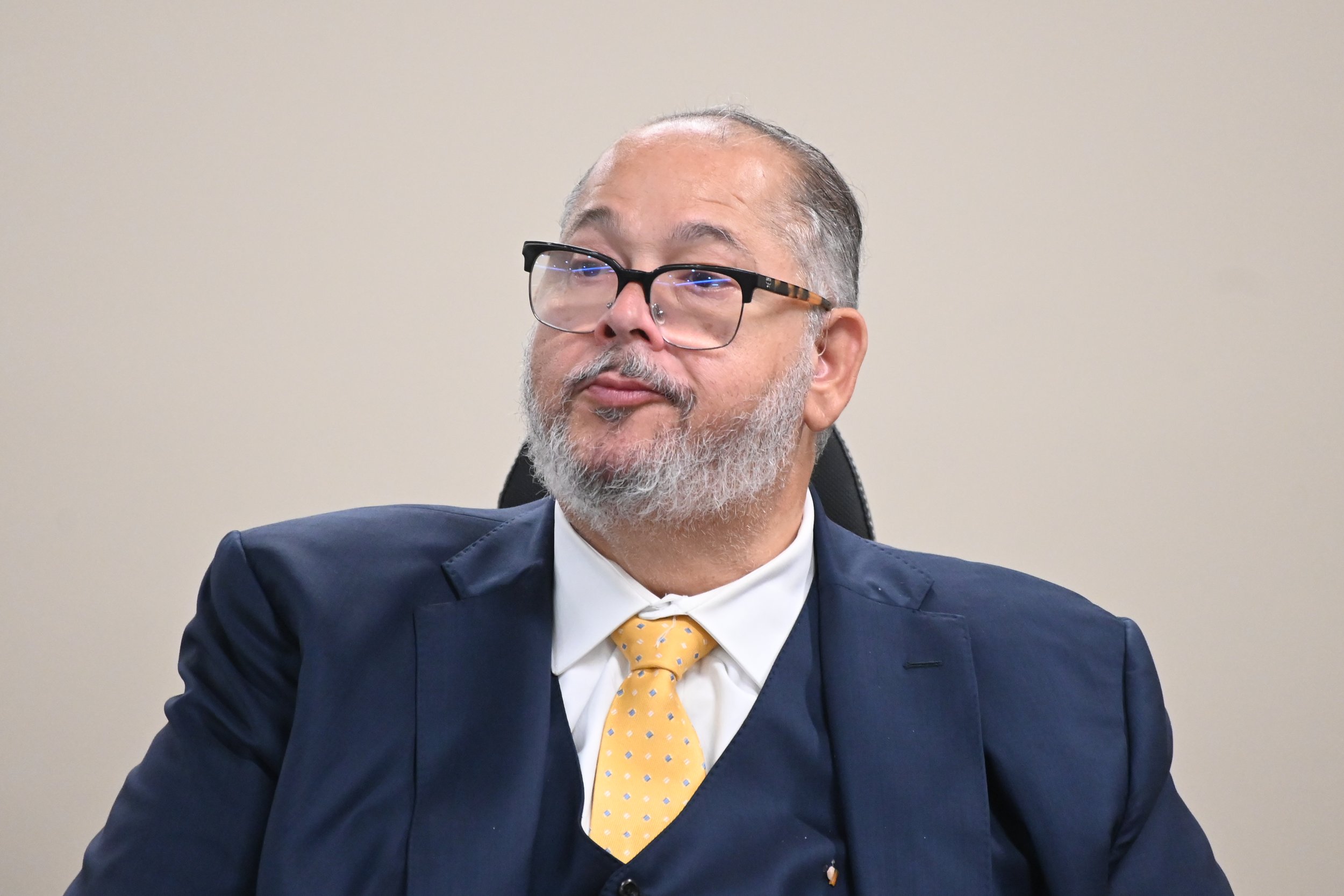
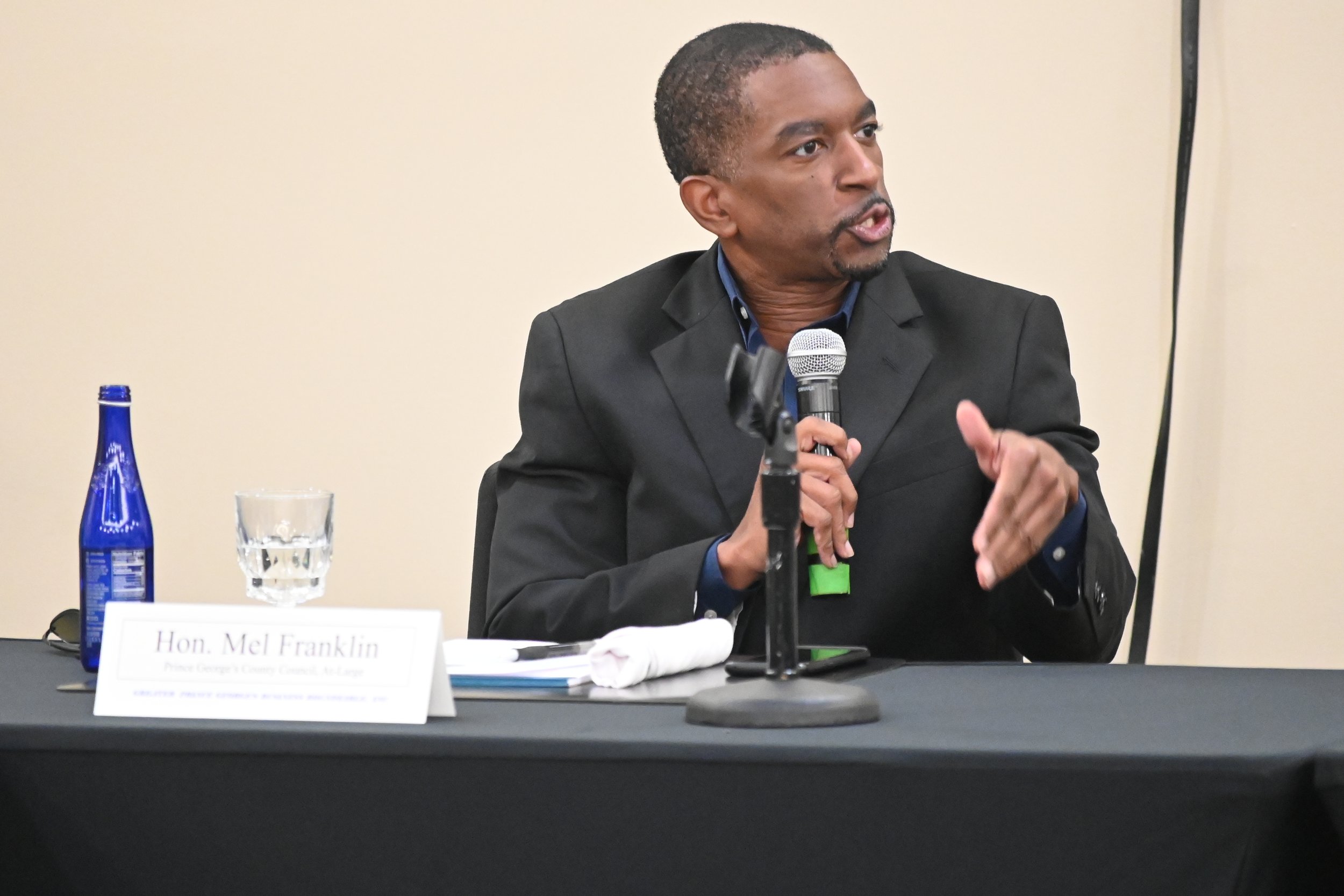

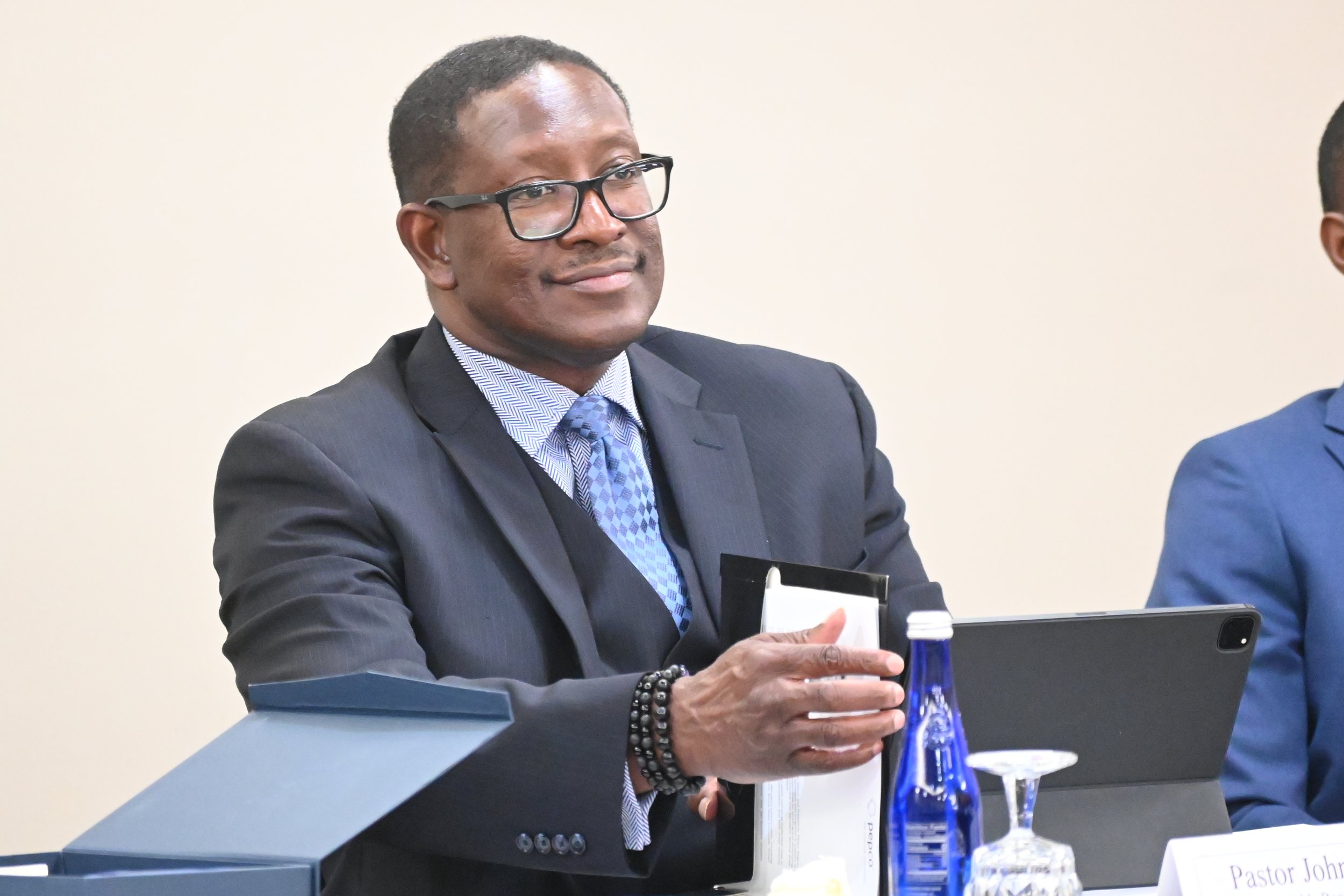
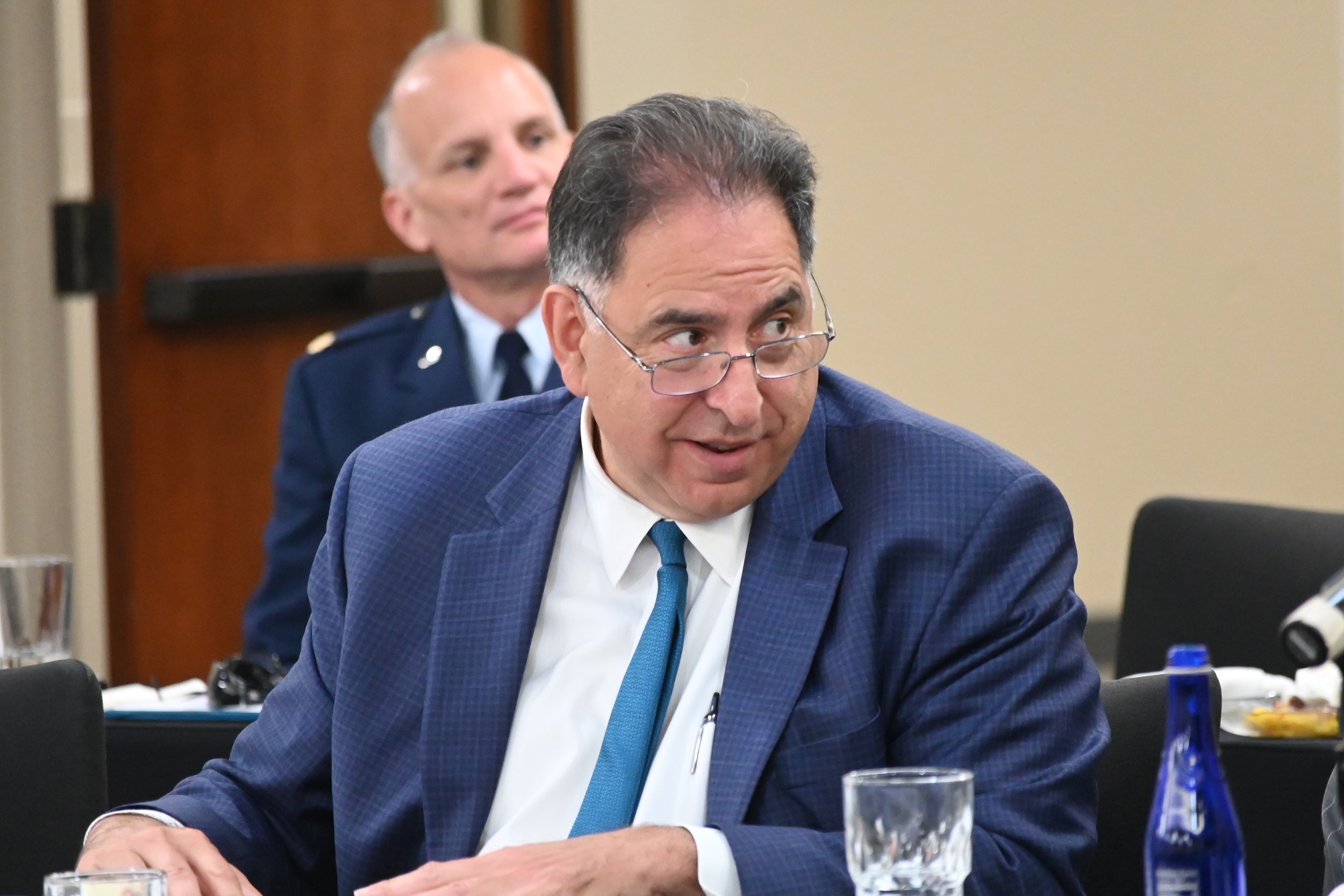
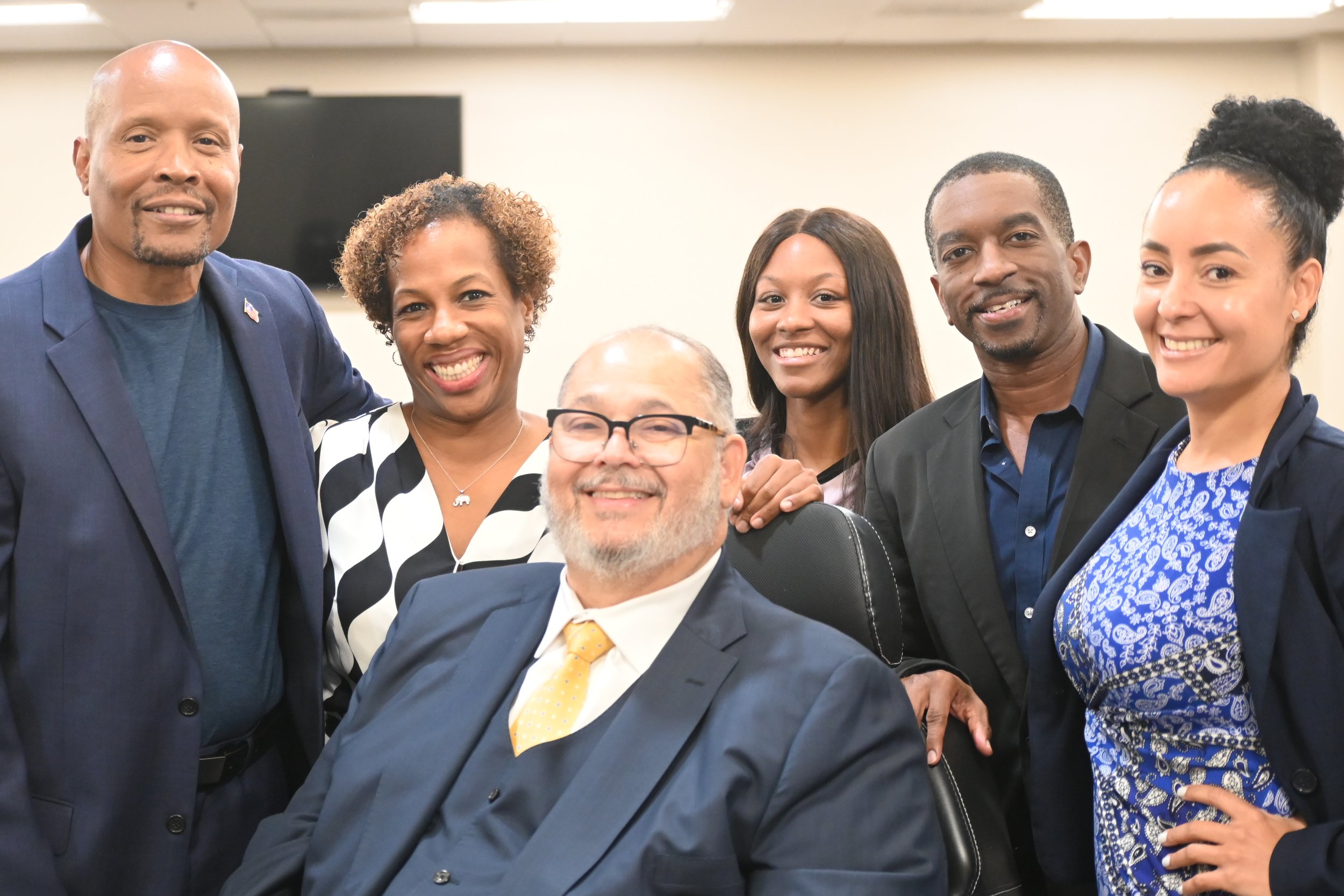
Now, the young leader has an incredibly ambitious vision for Prince George’s. He’s determined to tackle major issues such as crime and helping the county’s youth. He hopes to raise money for what he calls violence interrupters. He describes these as interventions wherein counselors speak with people who have been injured to help stem the possibility of retaliatory violence.
His passion and commitment were apparent as he spoke, speaking of the event he recently held with the public safety leadership in Prince George’s County. “I’ve asked them to supply of me a list of resources that they think they'll need. It’s not that I’ll be able to get everything, but in an environment where we are 100% supportive of appropriate accountability for everybody, we want to make sure that our law enforcement community knows that we have their back? Because they live in our neighborhoods and we need them if we're ever going to wrap our hands around this [crime issue], and I stand committed to that.”
Lewis also spoke of the 9% tax on cannabis upon purchase and his plan for how part of that percentage will be used to give back to the community. “Three cents out of nine goes to what's called the Community Repair and Restore Fund. [These funds will be directed toward] all the neighborhoods that had significantly higher arrest rates for the last several decades.”
Lewis didn’t seem to have a position on whether or not cannabis should be legalized but rather expressed that if it was going to happen, they could help those who aided in the fight against crime and drugs. He also spoke of other things the three percent tax could help with: “That could be helping seniors age in place, that could be scholarships, that could be after-school programs, that could be helping to fund violence interrupters, who knows what.”
But even without presenting a full opinion on legal cannabis, he makes it clear he wants to lessen the impact of drugs and alcohol on the county in some way. One way he’s doing that is by proposing to lessen the density of liquor stores. “We did a couple-of-year study and found that Prince George's County has about 50 excess liquor licenses based on our population than we should have. We should have about 135, we're at about 189 or somewhere around that amount. These stores by themselves are not a problem, but it is the density of the stores and proximity to one another that increases crime, increases drug abuse, increases blight. It decreases property values, as we all know.”
Lewis has major plans for Maryland as a whole. His vision is to make it a better place for its residents, and he wants to address the issues that may be a hindrance to the future of Maryland’s youth.
“We fully plan in Annapolis to make sure this is Maryland's decade,” he said. “We are rebuilding our state workforce. We are investing in new things, whether that's the transition to a clean economy because it's critically important. It is getting hotter and hotter all over. Everyone here experienced the smog that came down from Canada. It’s not a hoax, it’s not funny science. It's real, and we want a world for us and our children.”


